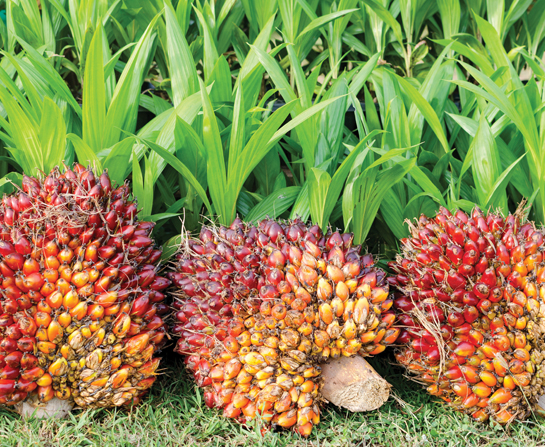The Other Side of the Story
May 1, 2022 Return


Dr Jean Graille Lipid Technology Consultant, Agricultural Research for Development (CIRAD), France
Palm oil is the most popular vegetable oil in the world. Dr Jean Graille explains that, in 2012, its global production reached 51 million tonnes, compared to 41 million tonnes for soy, 23 million tonnes for canola and 14 million for sunflower. Unsurprisingly, manufacturers and countries whose main exports are the competitors of palm oil have banded together to repeal the ‘threat’ of palm oil, by forming the anti-palm oil lobbies.
Dr Graille explains, “Certain members of the anti-palm oil lobby have an interest in denigrating the image of palm oil so that other vegetable oils or dairy fats may benefit.”
Such ‘games’ often involve obscuring facts for the sake of propaganda. Citing soy oil (often pushed forward by the anti-palm oil lobby as a great alternative to palm oil) as an example, Dr Graille points out that, unlike palm, the crop yield of soy is low so there is a need to clear more land for soy crops. “The cultivation of soybean has resulted in the loss of 10 times more biodiversity in the Amazon than oil palm,” he explains. And yet, we hear all the time about how palm oil is supposedly destroying the environment!
Unfairly targeted
These anti-palm oil lobbies take advantage of the fact that there are people who are still unaware of the benefits of palm oil to spread alarmist rumours about that oil. “Once disseminated, these claims can only be countered and eradicated by a laborious process of education centred on the promotion of scientific facts,” says Dr Graille.
Once the members of the public believe these claims, certain brands would soon push ‘palm oil-free’ products, under the pretext of consumer health. “In doing so, the brands believed that they had regained their credibility and increased their influence over customers through cheap, opportunistic advertising,” he adds.
Countering the bad press
Beating the bad press will require considerable effort, but Dr Graille says that researchers like him are working closely with relevant organizations worldwide to promote scientifically proven and unbiased information about palm oil.
He advises members of the public to not accept everything they read and hear at face value. “Consumers need to remember that scientific researchers consider refined palm oil as having a neutral or positive effect on health; its saturated fatty acids are not dangerous,” he says, adding that it contains compounds such as carotenes, tocopherols, and above all, tocotrienols that have a powerful protective effect against cancers and cardiovascular disease.
He also stresses that producers of food products containing palm oil can counter the spread of misinformation by providing scientifically accurate information on food labels. This way, consumers can make their own educated decision as to whether these products are suitable for them.
If you like this article, do subscribe here.
